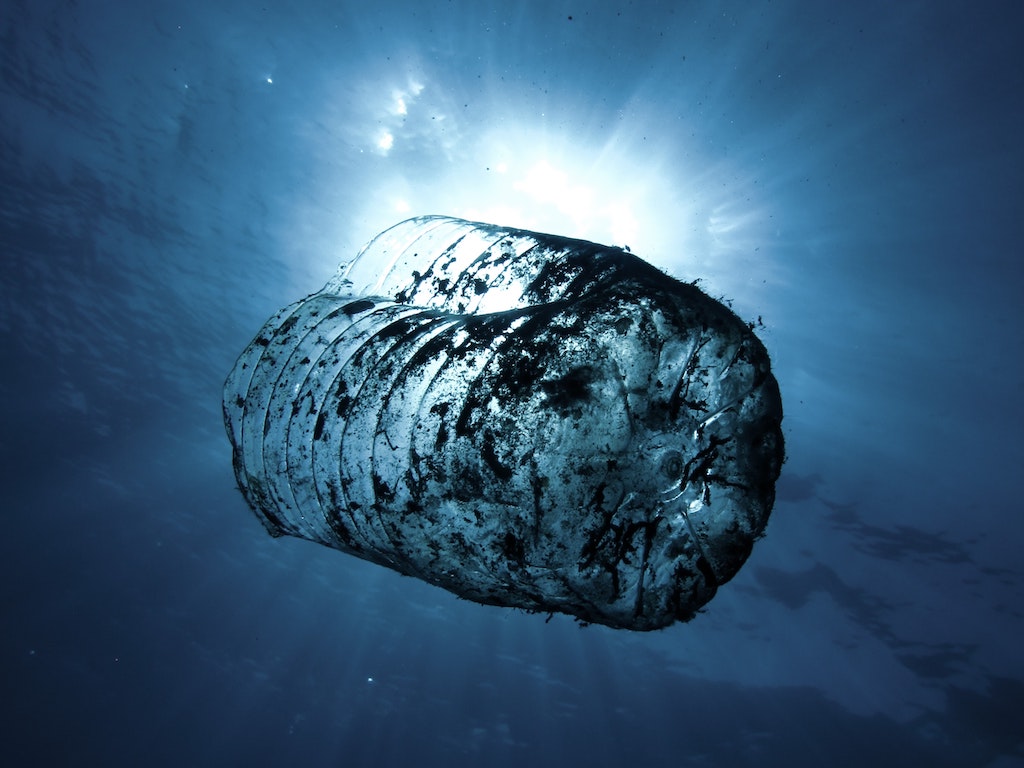3 Mins Read
New measurements of plastic pollution in the Atlantic ocean shows that the concentration of plastic is at least 10 times higher than previous estimates. Finding far greater amounts of tiny microplastic particles in the upper Atlantic ocean, the scientists warn that there could be serious consequences for both marine and human health.
In the new study, published in the journal Nature Communications, scientists from the U.K.’s National Oceanography Centre found between 12 to 21 million tonnes of microscopic plastic particles of the three most common types of plastics consumed and littered on the planet, in the top 200 metres of the Atlantic ocean.
This means that the concentration of plastic pollution in the whole of the Atlantic ocean would amount to at least 200 million tonnes – representing a 10-fold increase in previous estimates based on the calculations of mismanaged waste in coastal areas.
“Considering that plastics of other sizes and polymer types will be found in the deeper ocean and in the sediments, our results indicate that both inputs and stocks of ocean plastics are much higher than determined previously,” the researchers said.
To calculate these results, the scientists collected seawater samples from 12 different locations across the Atlantic between September and November in 2016. Large volumes of the seawater were then filtered, and were put under spectroscopic imaging to observe the tiny particles of polyethylene, polypropylene and polystyrene. Up to 7,000 microscopic particles of these three types of plastic were found in each cubic metre of seawater in their samples.
Considering that plastics of other sizes and polymer types will be found in the deeper ocean and in the sediments, our results indicate that both inputs and stocks of ocean plastics are much higher than determined previously.
Speaking to the Guardian, lead author of the study Katsiaryna Pabortsava said: “There is an awful lot of very, very small microplastic particles in the upper Atlantic ocean, much higher than the previous estimate. The amount of plastic has been massively underestimated.”
Researchers urged policymakers to take rapid action to stop plastic pollution from entering the ocean, where it could already be causing mass endangerment to marine life, ocean ecosystems and ultimately impact human health. They also said that more research must be done into the effect of tiny microscopic plastic particles, how it behaves in the water, and what dangers it poses when it enters the food chain.
There is an awful lot of very, very small microplastic particles in the upper Atlantic ocean, much higher than the previous estimate. The amount of plastic has been massively underestimated.
Katsiaryna Pabortsava, co-author of the study
These possible harms and negative consequences are likely to be explored in detail in future studies, as scientists recently discovered a novel technique that will enable them to detect the presence of microplastic particles in human organs.
Other studies published in recent months have too shown that the deluge of plastic waste in our oceans is likely to be far greater than previously thought. Earlier in July, a paper published in the journal Science found that even if the world slashed plastic consumption by 80%, there would still be an astonishing 710 million tonnes of plastic left on the Earth.
At our current rate, the world generates over 360 million tonnes of plastic each year, of which an estimated 10% enters the sea. Scientists have already managed to find traces of microplastic in everything from ocean spray to rainwater and even sea salt products sold in supermarkets.
Lead image courtesy of Unsplash.




